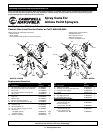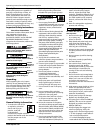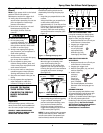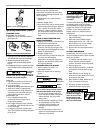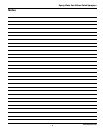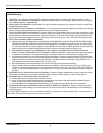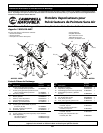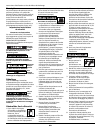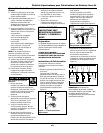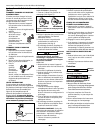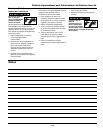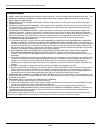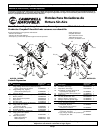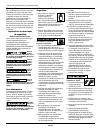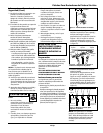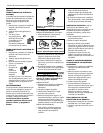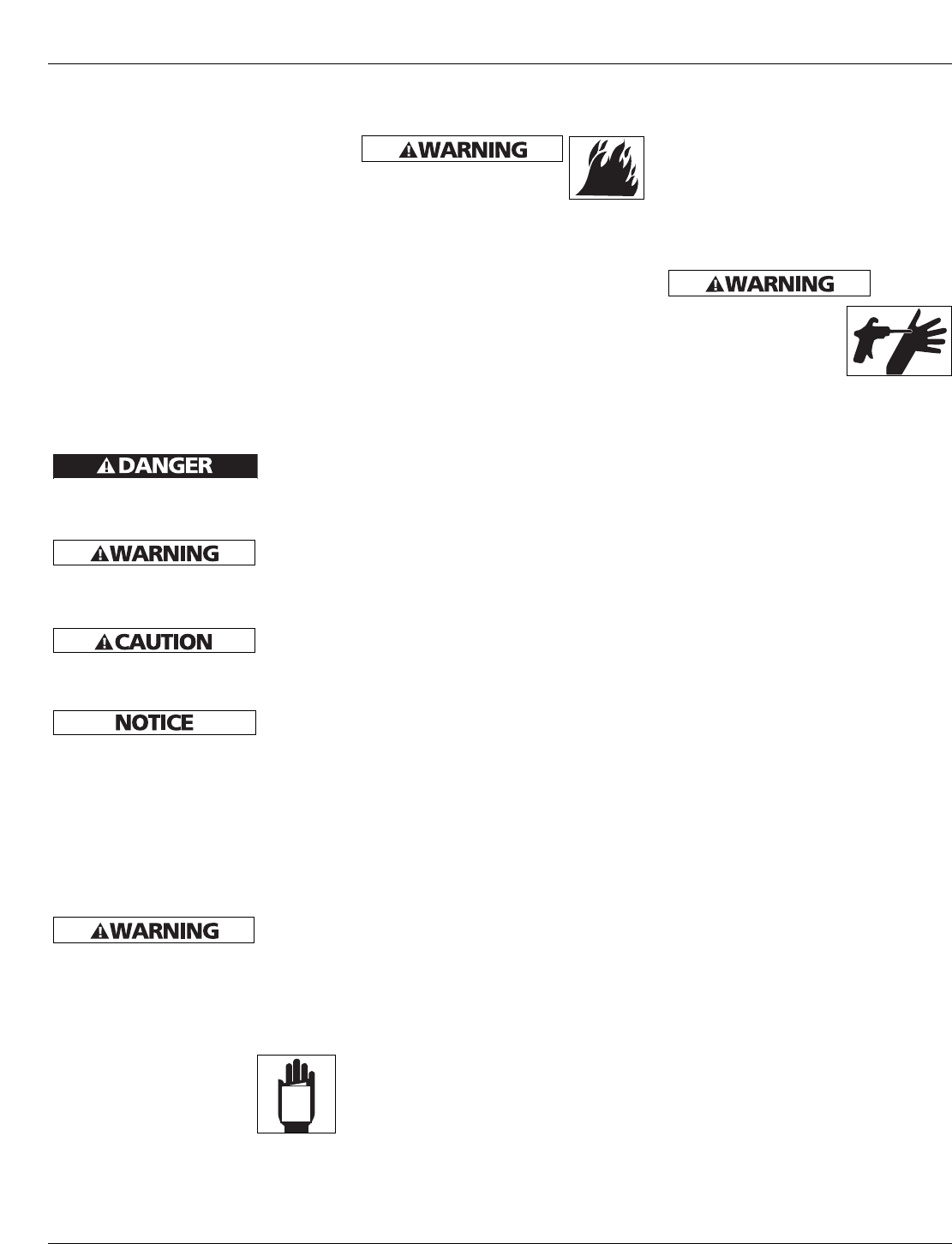
2
Operating Instructions and Replacement Parts List
Description
Airless paint sprayers are capable of
spraying a wide variety of latex, oil-
based, and alkyd paints, as well as
stains, preservatives and other non-
abrasive finishes. Sprayers are also
powerful and versatile enough to be
used with a variety of options (roller
attachment, extra lengths of hose, etc.)
to be an even more efficient tool.
Important Safety Instructions
Save these instructions.
This manual contains information that is
very important to know and
understand. This information is
provided for SAFETY and to PREVENT
EQUIPMENT PROBLEMS. To help
recognize this information, observe the
following symbols.
Danger
indicates
an imminently hazardous situation
which, if not avoided, WILL result in
death or serious injury.
Warning
indicates
a potentially hazardous situation
which, if not avoided, COULD result in
death or serious injury.
Caution
indicates a
potentially hazardous situation which, if
not avoided, MAY result in minor or
moderate injury.
Notice
indicates
important information, that if not
followed, may cause damage to
equipment.
Unpacking
After unpacking the unit, inspect
carefully for any damage that may
have occurred during transit. Make
sure to tighten fittings, bolts, etc.,
before putting unit into service.
Do not
operate
unit if damaged during shipping,
handling or use. Damage may result in
bursting and cause injury or property
damage.
General Safety Information
1. To reduce the risk of fire
or explosion, electrical
shock, and injury to
persons, read and
understand all
instructions included with this
product. Be familiar with the controls
and the proper use of the
equipment.
2. This product should be grounded.
Follow all grounding instructions
included with your sprayer (pump).
To reduce risk of fire or
explosion:
1. Do not spray flammable or
combustible materials near an open
flame or sources of ignition such as
cigarettes, motors, and electrical
equipment.
2. Paint or solvent flowing through the
equipment is able to result in static
electricity. Static electricity creates a
risk of fire or explosion in the
presence of paint or solvent fumes. All
parts of the spray system, including
the pump, hose assembly, spray gun,
and objects in and around the spray
area shall be properly grounded to
protect against static discharge and
sparks. Use only conductive or
grounded high-pressure airless paint
sprayer hoses specified by the
manufacturer.
3. Verify that all containers and
collection systems are grounded to
prevent static discharge.
4. Connect your sprayer to a grounded
outlet and use grounded extension
cords. Do not use a 3 prong to 2
prong adapter.
5. Do not use paints or solvents
containing halogenated
hydrocarbons such as methyl
bromine, carbon tetrachloride, and
ethyl iodine.
6. Keep spray area well ventilated.
Keep a good supply of fresh air
moving through the spray area.
7. Do not smoke or eat in the spray
area.
8. Do not operate light switches,
engines, or similar spark producing
products in the spray area.
9. Keep area clean and free of paint
or solvent containers, rags, and
other flammable materials.
10. Know the contents of the paints
and solvents being sprayed. Read all
Material Safety Data Sheets (MSDS)
and container labels provided with
the paints and solvents. Follow the
paint and solvent manufacturer’s
safety instructions.
11. Do not use materials with a flash
point less than 20°C (70°F) in or to
clean this equipment. (Examples of
acceptable cleaning solvents are:
water, mineral spirits, lacquer
thinner, Xylene and high flash
naphtha. A PARTIAL example list of
unacceptable cleaning solvents are
low flash naphtha, mek, acetone,
alcohol, toluene and fuels of any
kind.
12. Have fire extinguisher equipment
present and working.
To reduce the risk of
skin injection:
1. Do not aim the gun
at, or spray, any
person or animal.
2. Keep hands and other body parts
away from the discharge. For
example, do not try to stop leaks
with any part of the body.
3. Always use the nozzle tip guard. Do
not spray without nozzle tip guard
in place.
4. Do not remove tip while cleaning
the pump.
5. Only use a nozzle tip specified by
the manufacturer.
6. Use caution when cleaning and
changing nozzle tips. Before
removing the nozzle tip, follow the
manufacturer’s instructions for
turning off the unit and relieving
the pressure.
7. Do not leave the unit energized or
under pressure while unattended.
When not in use turn off the unit
and relieve the pressure in
accordance with the manufacturer’s
instructions.
8. High pressure spray is able to inject
toxins into the body and cause
serious bodily injury. In the event
that injection occurs, seek medical
attention immediately.
9. Check parts for signs of damage.
Replace any damaged parts.
10. This spray gun is rated for 3000 psi
(205 bar). Do not use on systems
designed to produce more than
3000 psi (205 bar).
11. Always engage the trigger lock
when not spraying. Verify the
trigger lock is functioning properly.
• To lock (engage): rotate tabs on
lock to horizontal position.
• To unlock (disengage) to spray:
rotate tabs on lock to vertical position.
MANUAL
www.chpower.com



